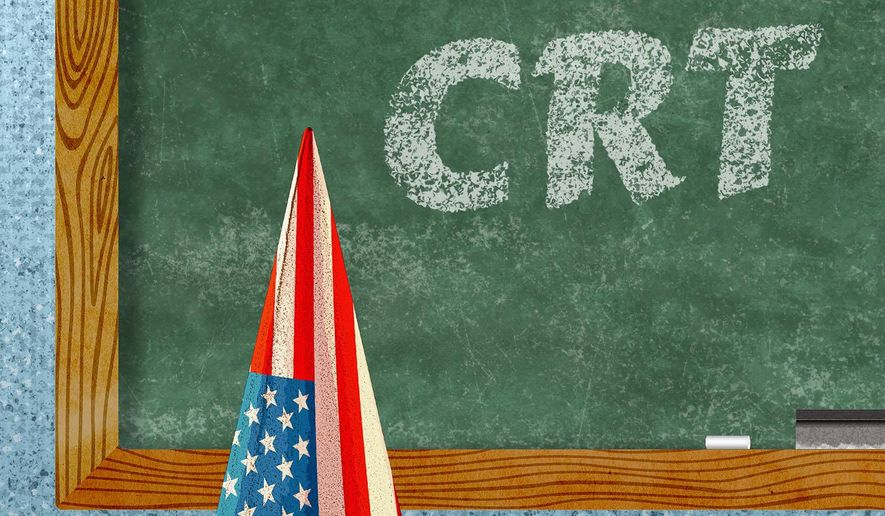OPINION:
Recent polls have shown rising support for socialism and an increasingly negative view of capitalism, particularly among the young. A poll in early June by Momentive found that for those 18 to 24, negative views of capitalism outweighed positive views by a margin of 54% to 42%.
Most of those who say they support socialism are probably unaware that it has failed every place and time that it has been tried.
They are also probably unaware that socialist countries of many different stripes managed to kill upwards of a hundred million of their own citizens over the last hundred years.
They may also not be aware that socialism relies on coercion to function – that part of the product that one person produces is given to another based on political or physical power. By contrast, capitalism relies on the voluntary exchange of goods and services, where a person tries to improve their own economic circumstance by serving the wants, needs and desires – without force.
The two biggest teachers’ unions, the AFT and NEA, have endorsed the teaching of “critical race theory,” which teaches children to dislike and distrust others based on skin color. Last week at the NEA’s annual meeting, the delegates demanded that the union issue a study criticizing, among many things, “capitalism.” Has anyone thought through the alternatives – a system based on slavery or serfdom (which was practiced almost everywhere in the world up to the 20th century)? Historically, people were most often ruled by absolute monarchs or dictators of various stripes. How would any of that be improved under the system devised by the American founders?
The political/economic options are in a practical sense limited to free-market democratic capitalism with a strong impartial rule of law, various forms of crony capitalism, or various forms of crony socialism – the last two invariably morphing into an authoritarian government of some sort. Under capitalism, investment and productive labor are allocated by individual consumer choice. People want more walnuts and fewer almonds, so farmers plant more walnut trees – more SUVs and fewer sedans, so the auto companies adjust their product mix to meet changes in demand.
Under socialism, there is no good mechanism for meeting consumer demand; the socialist leaders decide what the people should have. There is no mechanism for creating and encouraging innovation – that is why socialist states normally only produce something new after it has already been produced in a capitalist country and demand for it has been demonstrated. Like von Mises, F.A. Hayek, and others clearly demonstrated, the socialist economies have no way of determining prices without relying on market-determined prices in capitalist economies as a reference of how to allocate capital and labor. That is the main reason that socialist economies are endlessly plagued by too much production of things people do not want and too little production of things people do want.
Every truly educated person, or anyone who has personally observed socialist economies, knows that it is a system doomed to misery and failure. So why then are the teachers’ unions advocating that capitalism be attacked, and socialism be applauded? The answer is simple, willful ignorance. The public school system is a socialist structure. It worked reasonably well when many largely autonomous small towns and small city systems competed with each other, with heavy involvement from parents. As cities grew larger, and more and more decisions about schools were made at the state and now the federal level, the independent competitive model broke down. Large monopoly systems evolved with all of the problems of monopolies.
Before WWII, it was often difficult for women to gain entry to high-paying professions. Many exceptionally talented women settled for being school teachers – bad for them but great for the students. With most barriers removed, many of the smartest women (not all, but many) are no longer working as teachers. They have been replaced by less talented, less knowledgeable, and less dedicated men and women in many cases. (Schools of education are usually the least rigorous departments in most universities.) Again, there are many very smart and talented teachers. Still, the mean has been declining – which is why teachers’ unions can get away with advocating nonsense such as critical race theory and the “glories of socialism.”
What should be taught is comparative economic and political systems. Students should be challenged to understand what works and what doesn’t. Several organizations produce country comparative rankings of economic freedom, freedom of speech, religion, assembly, the press, and democracy. Some countries – Switzerland, Australia, New Zealand, among others – are consistently near the top in all of these measures (which again are produced by different organizations). Why are the richest countries with the least amount of absolute poverty all capitalist with a very high degree of economic freedom? Why is the average black American richer than most Europeans, let alone Africans and Asians? Why has the U.S. relative ranking fallen on many measures, like the rule of law and economic freedom, in the last couple of decades? If students and their teachers had a greater understanding of these issues, the conflict would be reduced, and policies would likely be better.
• Richard W. Rahn is chairman of the Institute for Global Economic Growth and MCon LLC.




Please read our comment policy before commenting.